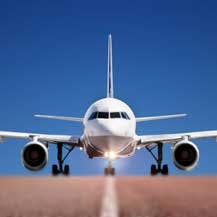Business travellers are being hit with significant foreign currency fees and commissions each time they travel, but there are a few simple ways to cut costs during overseas trips.
According to Mozo.com.au managing director Rohan Gamble, travellers are being charged $1.4 billion a year just for spending their money overseas, with foreign currency fees and other travel money charges adding hundreds of dollars to the cost of the average overseas trip.
“Our love of overseas travel is creating a lucrative business for the banks and travel money operators, who are slugging Aussie travellers with a confusing array of fees for spending money overseas.”
Gamble said Mozo.com.au research shows travel money charges are badly communicated by the industry, making it difficult for consumers to understand multiple layers of fees and commissions.
Travellers can avoid paying unnecessary fees and charges, by following these tips:
1. Shop around for the best foreign currency rates
Pre-ordering your foreign currency and collecting it from your nominated bank branch or foreign exchange outlet usually results in the best rates. Don’t leave it too late and exchange your cash at the airport as the rates and commissions are some of the worst around.
2. Beware ‘commission free’ foreign currency
“No commission” doesn’t always mean no extra cost to you, as most providers build a profit margin into their buy and sell rates which is separate to any advertised commission. Some have higher margins than others, so it pays to compare before you exchange.
3. Don’t get stung by card fees
Some credit and debit cards sting you with big overseas transaction fees and miserable foreign exchange rates. If you like to use a credit or debit card as your main form of payment when travelling, get a card that has no foreign exchange fees and no overseas ATM withdrawal fees such as the 28 Degrees MasterCard from GE Money or the Citibank Plus Visa Debit.
4. Consider pre-paid travel cards
‘Top up’ travel money cards which can be pre-loaded with your chosen currency are becoming increasingly popular with travellers looking for a convenient and secure alternative to cash. Be sure to check exchange rates when comparing prepaid cards and watch out for additional fees for things like recovering your cash post-holiday.
5. Don’t tap your plastic for cash if you run out
Getting a cash advance using your credit card at an overseas ATM is hands down the most expensive way to obtain cash while on holiday. You’ll incur an overseas cash advance fee, a foreign exchange fee and interest on your cash advance from day one, at a very hefty rate. A handful of credit cards will let you put the card into credit before you leave and make fee-free withdrawals overseas, but be sure to check your card allows this before considering this strategy.
Travellers can also make use of Mozo’s new travel money comparison service, which allows them to compare current foreign exchange rates and fees from the major currency providers, check charges involved in using their debit and credit cards overseas and find the best pre-paid travel card for their needs.

